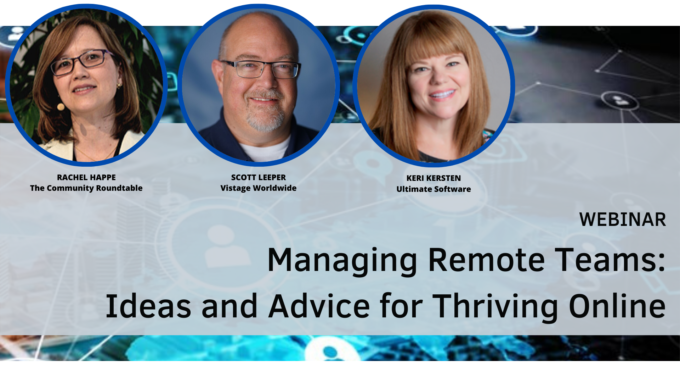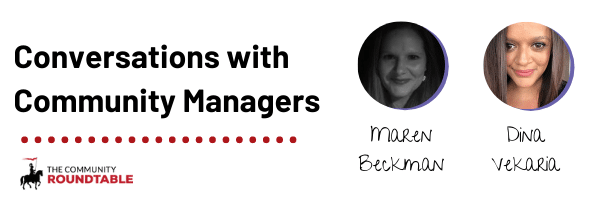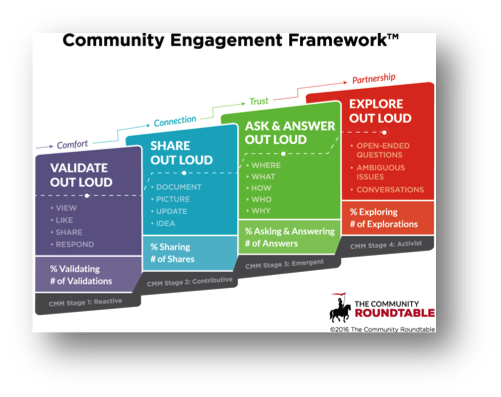
The dramatic spread of COVID-19 changed what life looks like for millions of people – forcing people to evaluate how thriving online can impact their work, school, and personal connections.
Colleges and Universities embraced virtual learning. Employers are closing offices and encouraging people to work from home in industries where that is possible, signaling a permanent shift in how people interact at their organization.
However, if you are a manager who has traditionally worked primarily in an office with your teams, there are real challenges to moving work online, especially as it relates to working together.
Rachel Happe, Scott Leeper, and Keri Kersten explored the challenges of managing remote teams and shared best practices and advice for thriving in this new hybrid work environment, including how to:
- Support change, adaptation, and flexibility
- Create teamwork routines and prompts
- Institute working out loud
- Mix work and fun
- Manage staff and conflict remotely



 Community Engagement Framework
Community Engagement Framework